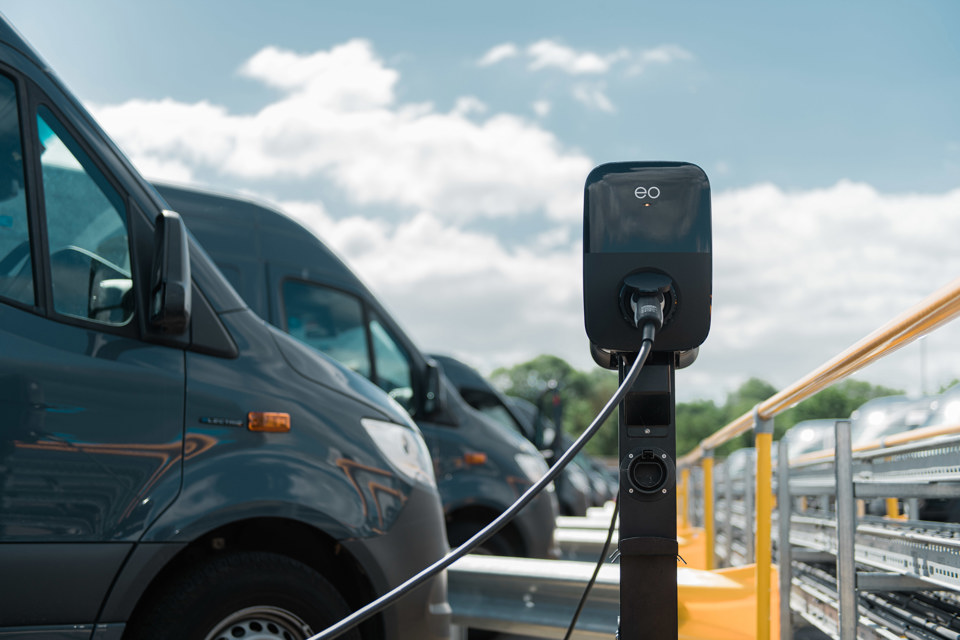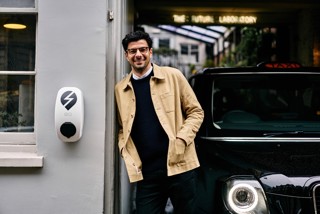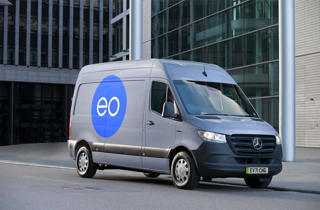Nearly half (46%) of British fleet managers are confused by or unaware of the upcoming rules on the sale of smart EV chargers, according to EO Charging.
From Thursday (June 30), all newly installed chargepoints must comply with the new Electric Vehicles (Smart Charge Points) Regulations, which require the devices to have ‘smart’ functionality that allows the charging of an electric vehicle (EV) when there is less demand on the grid, or when more renewable electricity is available.
EO Charging warned that a lack of understanding around new rules risks undermining the UK’s progress toward net zero. A further 26% of fleets falsely assumed that the new rules would lead to raised running costs for their fleet.
Fleet managers' pessimism is linked to the fact that nearly three quarters of firms (73%) reported their adoption of EV vehicles had been complicated or held back by recent changes to regulations and grants.
Earlier this month the Government ended the plug-in-grant for cars nearly a year earlier than it had originally promised. Half of those interviewed by EO Charging (55%), stated that such changes had increased business costs, while just 30% agreed that EV rules and government guidance to date had been easy and low-cost to implement.
Charlie Jardine, CEO at EO Charging, said: “Bringing in new market policy or legislation isn’t easy; it takes time for an industry to adapt. But these businesses don’t have time – they’ve got a hard deadline to transition to electric and need to feel confident in the economic and environmental case for doing so.
"It’s vital that government and industry providers, like EO, do what we can to ensure confusion over these law changes does not slow down the pace of fleet electrification.
“The benefits of smart charging are significant – from increased vehicle uptime, savings on long-term energy costs, to a lower TCO – that’s the message businesses need to hear. The fact that a quarter think this move will increase costs, is a real concern.
"The UK has become a world leader in EVs, and large fleets like our customers Amazon and Tesco, are setting the pace for their global peers. We must do what we can to continue to strengthen and grow that leadership.”
EO Charging has launched a commercial charger that is fully compliant with the new regulations, which can deliver around a 60% saving in long-term energy costs through effective load management and reductions in excess peak time charging.
The EO Genius 2 can power up to 22kW and, following hardware upgrades due within one year, will be vehicle to grid (V2G) ready.
The EO Mini Pro 3 will take over from the best-selling EO Mini Pro 2 as its signature home charger. No bigger than an A5 notepad, the device has a charging capacity from 7kW up to 22kW. V2G functionality will also be added at a later date.
Despite confusion over the rules, EO charging said the majority of UK firms continue to make solid progress on EV fleet adoption, with eight in 10 (81%) having a clear strategy in place, and 50% already implementing their plans. More than twice the proportion of businesses expect the shift to EVs to boost (52%) rather than undermine future profitability (32%).
> Interested in comparing electric vehicle data? Check out our EV tool.
> Interested in ensuring the efficient use of EVs. Check out our dedicated editorial sections: Insight & policy | EV news | Charging & infrastructure | Costs & incentives | Benefit-in-kind | EV case studies | EV road tests























Login to comment
Comments
No comments have been made yet.